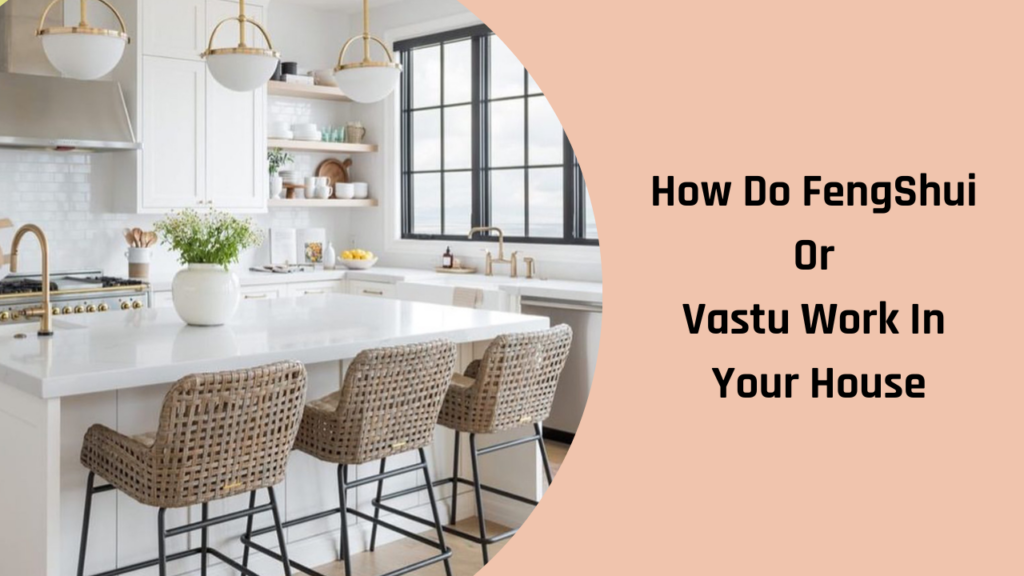Mastering the Flow: Key Feng Shui Concepts for Home and Life

Feng Shui, an ancient Chinese practice that has been around for thousands of years, is more than just a design trend. It’s a philosophy, a way of understanding how our environment affects us, and how we can arrange our spaces to live in harmony with nature. In this guide, we’ll delve deep into the core concepts of Feng Shui, its significance, and how you can apply its principles to enhance your home and life.
Also Read:- How Do FengShui Or Vastu Work In Your House
What Does Feng Shui Literally Mean?
“Feng Shui” translates to “Wind Water” in English. In Chinese culture, wind and water are associated with good health, and thus, having good Feng Shui means having good fortune, while bad Feng Shui means misfortune. The practice revolves around the idea of optimizing the flow of energy, or “chi,” in a space.

Basic Principles of Feng Shui
- The Five Elements: Feng Shui categorizes everything in the universe into five elements: Wood, Fire, Earth, Metal, and Water. Each element has its characteristics and can either nourish or destroy another element. Balancing these elements in a space is crucial.
- The Bagua: Often represented as an octagonal grid, the Bagua is a tool used to analyze the energy of a space. Each section corresponds to a different life area, such as wealth, health, or relationships.
- Yin and Yang: These are the two opposing but complementary energies that make up everything in the universe. A balance between the two, neither too much yin nor too much yang, is ideal.
What Are the Feng Shui Rules?
While Feng Shui offers numerous guidelines, some key rules include:
- Clear the Clutter: A clutter-free space allows chi to flow freely.
- Prioritize Natural Light: Natural light promotes positive energy. Ensure your home gets ample sunlight.
- Place Furniture Wisely: Avoid placing furniture in direct alignment with the door, as it’s believed to block the flow of energy.
- Incorporate Nature: Plants, water elements, and natural wood can enhance the chi of a space.
Is Feng Shui Good Luck?
While Feng Shui isn’t just about luck, applying its principles can create an environment where energy flows positively, which can, in turn, attract good fortune. It’s about aligning your environment in a way that harmonizes with your personal chi and the chi of the space.
Applying Feng Shui in Different Areas of Your Home
- Feng Shui Garden: Incorporate the five elements. Use curvy pathways, add water features, and ensure a balance between open spaces and planted areas.
- Feng Shui Bedroom: The bed should have a strong supporting wall behind it and should not be in direct alignment with the door. Colors should be soothing, promoting rest and relaxation.
- Feng Shui Living Room: Furniture should be arranged to promote conversation and connection. Avoid having all furniture against the walls.
Feng Shui Pronunciation and Origin
Pronounced as “Fung Shway,” this practice originated in China. The ancient Chinese used it primarily to locate buildings and spiritual structures in an auspicious manner.
Feng Shui Items for Your Home
There are several items believed to enhance the Feng Shui of a space:
- Mirrors: Used to expand a space and reflect positive energy.
- Crystals: Promote healing and positive energy.
- Fountains: Activate the energy of wealth and prosperity.
Feng Shui Books for Deeper Understanding
For those keen on diving deeper, there are numerous books on the subject. Some popular titles include “The Complete Idiot’s Guide to Feng Shui” and “Feng Shui for Dummies.” These books offer a more comprehensive look at the practice and its applications.
Conclusion
Feng Shui is more than just a design philosophy; it’s a way of life. By understanding and applying its principles, you can create a home that not only looks aesthetically pleasing but also promotes health, happiness, and prosperity. Whether you’re a skeptic or a believer, there’s no denying the sense of peace and balance a well-arranged space can bring to one’s life.








